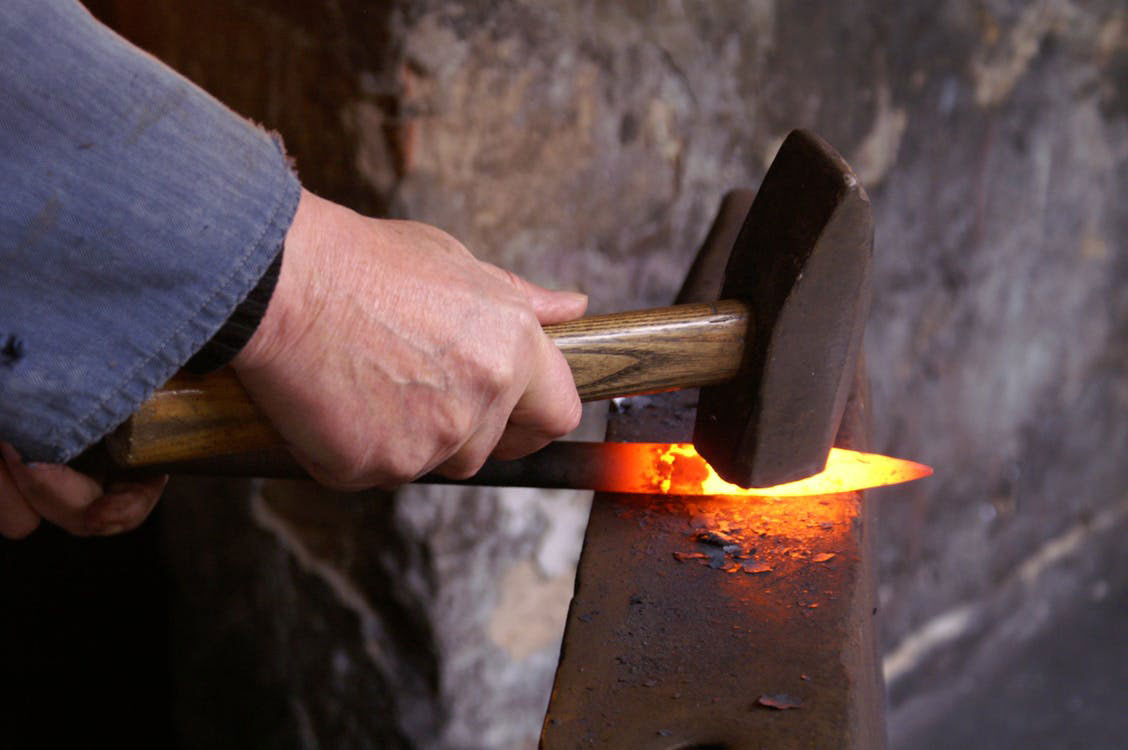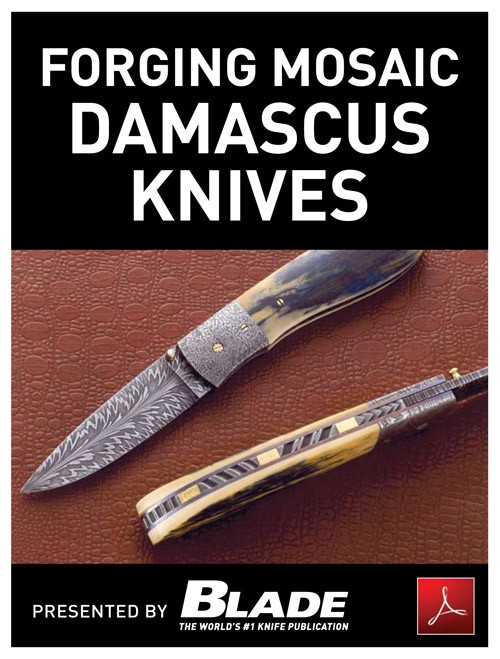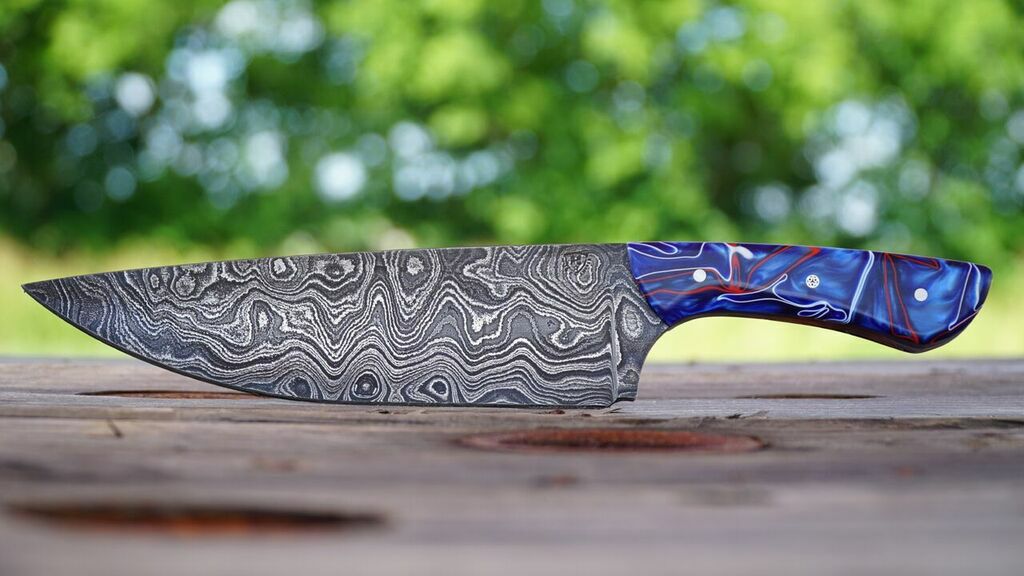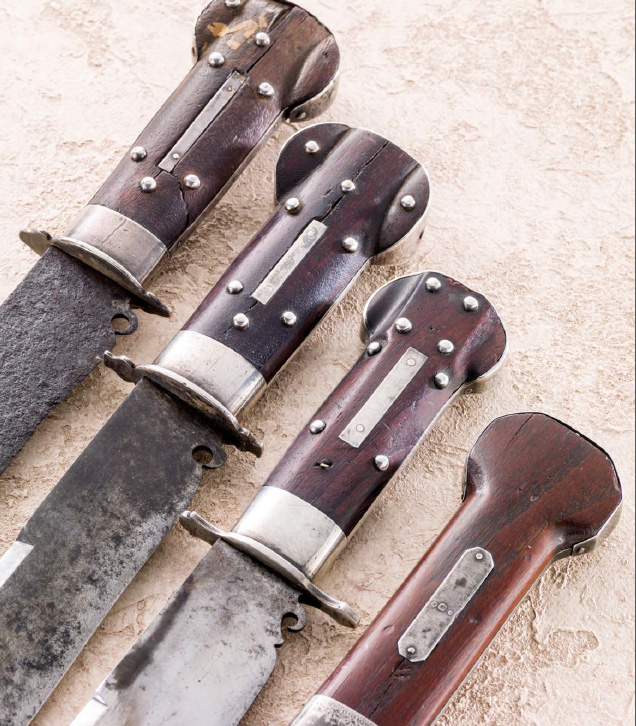
The distinctive handle of the dog-bone bowie knife resembles a dog bone and allows the user to swing, slice, hack, stick and pull the knife without it flying or slipping out of the hand. A wrap of thin coin silver protects the end of the dog bone, or pommel. An oval-shaped silver ferrule supports the wooden handle at the guard. A metal ferrule is a characteristic of early American knives. It prevented the handle from cracking.
For decoration, thin coin-silver strips are pinned to the top and bottom of the handle from ferrule to pommel. Domed silver studs and rectangle escutcheon plates adorn the dark walnut handle. A thin silver cross guard decorated on each end provides protection to the user’s hand.
The decorated wooden handle without the silver pommel wrap slips over the blade’s hidden tang. A slotted cylinder nut secures the handle to the threaded tang. The photos accompanying this article show both the slotted nut on the handle with the silver pommel removed, and the silver pommel wrap covering this feature. The slotted cylindrical nut is a feature of knives made by the French cutlers of the time in New Orleans.
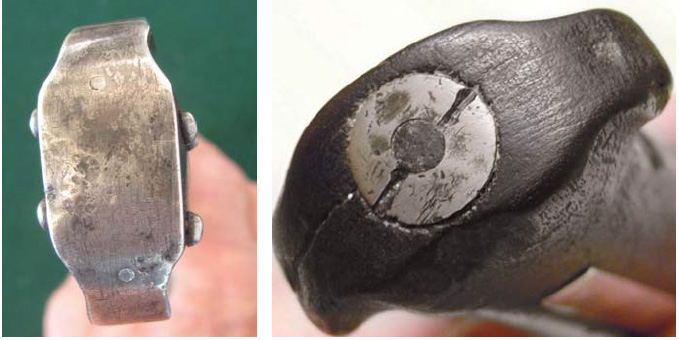
The feature is evident on push daggers and on knives made by Blaise Pradel that originated in New Orleans. His mark of “PRADEL, A NEW ORLEANS,” is French for Pradel of New Orleans. A pupil of Charriere of Paris, France, Pradel lived on St. Charles Street in New Orleans. The blades were forged and flat ground into a triangular cross section.
They did not have a ricasso. The ricasso is the rectangular cross section of the blade before the guard on modern knives. Instead, they had a circular notch on the edge called a Spanish notch. It is a form of decoration. In the past, it may have had a purpose that is unknown today.
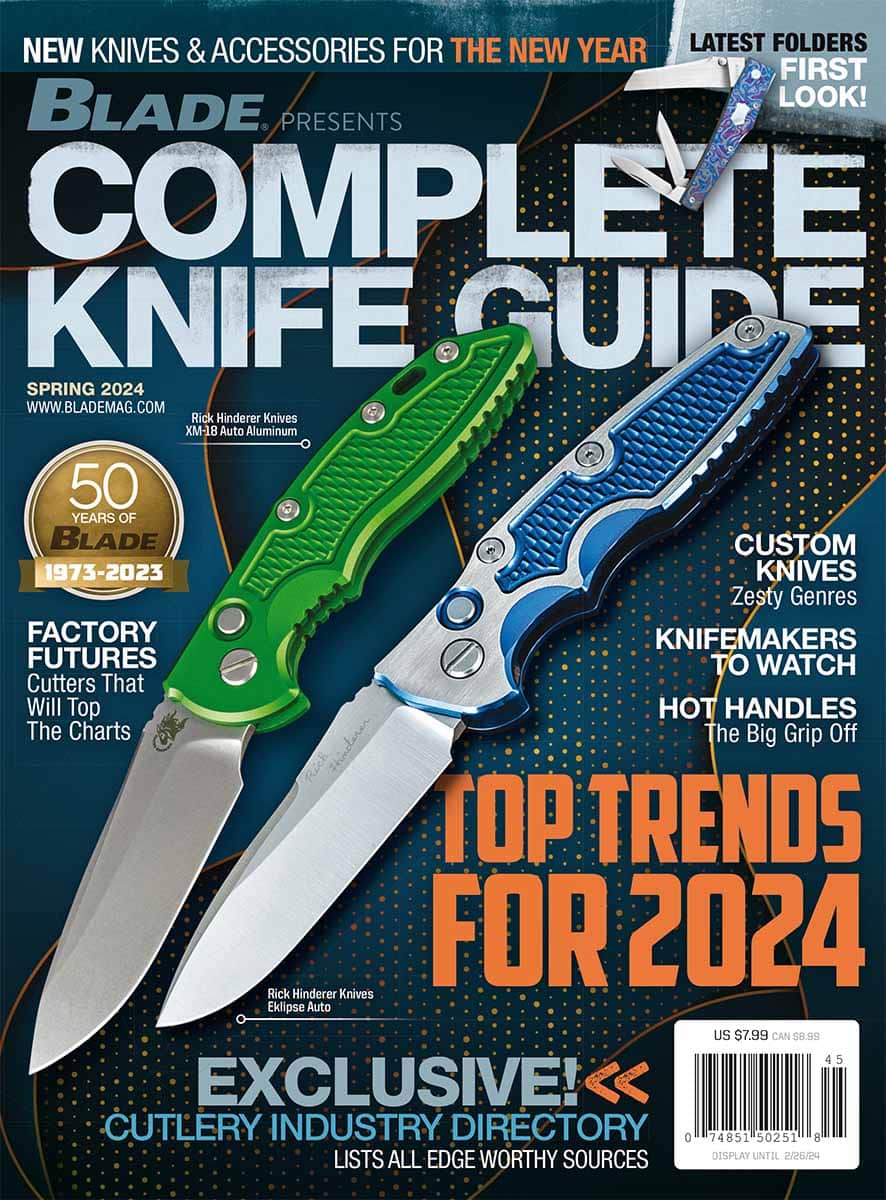 NEXT STEP: Download Your Free KNIFE GUIDE Issue of BLADE Magazine
NEXT STEP: Download Your Free KNIFE GUIDE Issue of BLADE Magazine
BLADE’s annual Knife Guide Issue features the newest knives and sharpeners, plus knife and axe reviews, knife sheaths, kit knives and a Knife Industry Directory.Get your FREE digital PDF instant download of the annual Knife Guide. No, really! We will email it to you right now when you subscribe to the BLADE email newsletter.


